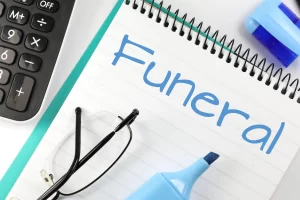Introduction
When a loved one passes away, their property and assets must be transferred to the rightful beneficiaries according to their wishes or applicable laws. In New York, this process involves various legal steps, requirements, and considerations that need to be carefully navigated. Morgan Legal Group PLLP, a trusted law firm based in New York City, is here to guide you through this complex process. This comprehensive guide will walk you through the steps to transfer property after death in New York, ensuring you have the information you need during this challenging time.
Understanding Probate and Non-Probate Property
In New York, the process of transferring property after death can vary based on whether the deceased person’s estate goes through probate or non-probate administration.
Probate Property
Probate property includes assets solely owned by the deceased individual that do not have a designated beneficiary. These assets may include real estate, bank accounts, vehicles, personal belongings, and investments. If the deceased left a valid last will and testament, the property will be distributed according to their wishes through probate.
Non-Probate Property
Non-probate property, on the other hand, encompasses assets that have designated beneficiaries or are held jointly with rights of survivorship. Examples include life insurance policies, retirement accounts, and jointly owned real estate. These assets pass directly to the named beneficiaries or surviving joint owners, bypassing the probate process.
Initiating the Probate Process
When a deceased individual’s estate contains probate property, the first step is to initiate the probate process. The process is typically overseen by the Surrogate’s Court in the county where the deceased resided at the time of their passing.
1. Filing the Petition
The executor named in the deceased’s will (or an appointed administrator if there is no will) must file a petition with the Surrogate’s Court to open the probate case. The petition should include information about the deceased, the will (if applicable), potential heirs, and the proposed executor or administrator.
2. Proving the Will’s Validity
The Surrogate’s Court must determine its authenticity if a valid will exists. This typically involves providing witnesses who signed the will and other evidence to establish validity. If the will is deemed valid, the court will grant letters of testamentary to the executor, officially empowering them to administer the estate.
3. Inventory and Appraisal
The executor must create an inventory of all probate assets and appraise them to determine their fair market value as of the date of the deceased’s death. This inventory should include real property, bank accounts, investments, personal property, and other assets subject to probate.
4. Paying Debts and Taxes
Before distributing assets to beneficiaries, the executor must settle any outstanding debts and taxes owed by the estate. This may involve selling assets or using available funds to cover these obligations.
5. Distributing the Estate
Once all debts, taxes, and administrative expenses have been settled, the executor can proceed with distributing the remaining assets to the beneficiaries as outlined in the will.
Intestate Succession: When There’s No Will
If the deceased did not leave a valid will, their estate is considered intestate. In such cases, New York’s intestate succession laws will determine how the estate is distributed.
1. Spouse and Children
If the deceased is survived by a spouse and children (or their descendants), the spouse typically inherits the first $50,000 plus half of the remaining estate. The children or their descendants inherit the remaining half.
2. Spouse and Parents
If the deceased is survived by a spouse and parents but no children, the spouse inherits the first $50,000 plus half of the remaining estate, and the parents inherit the remaining half.
3. Spouse Only
If a spouse survives the deceased but has no children or parents, the spouse inherits the entire estate.
4. Parents Only
If a spouse or children do not survive the deceased, the parents inherit the estate.
5. Siblings
If the deceased is not survived by a spouse, children, or parents, the estate passes to the deceased’s siblings or their descendants.
6. No Surviving Relatives
If the deceased has no surviving relatives, the estate may escheat to the state of New York.
Non-Probate Property Transfer
Unlike probate property, non-probate property does not pass through the probate process and is directly transferred to designated beneficiaries or surviving joint owners. However, certain steps need to be taken to ensure a smooth transfer.
1. Life Insurance Policies
Life insurance policies typically require beneficiaries to file a claim with the insurance company. The company will then request a copy of the death certificate and process the payout accordingly.
2. Retirement Accounts
For retirement accounts like IRAs and 401(k)s, the account holder designates beneficiaries during their lifetime. The beneficiaries can claim the assets directly from the account custodian upon the account holder’s death.
3. Jointly Owned Real Estate
When real estate is jointly owned with rights of survivorship, the surviving owner automatically becomes the sole owner of the property upon the other owner’s death. The property’s title will need to be updated to reflect the change.
4. Bank Accounts
Bank accounts held jointly or with payable-on-death (POD) designations allow the surviving account holder or designated beneficiary to claim the funds without probate.
Avoiding Probate: The Use of Trusts
One way to avoid probate for certain assets is to create trust during your lifetime. A trust allows you to transfer ownership of your assets to the trust, and upon your death, the assets are distributed to the beneficiaries without going through probate. Here are common types of trusts:
1. Revocable Living Trust
A revocable living trust is created during the grantor’s lifetime and can be altered or revoked as circumstances change. The grantor can serve as the trustee and manage the trust’s assets until their death or incapacity. After the grantor’s passing, the successor trustee takes over and distributes the trust assets to the beneficiaries without the need for probate.
2. Irrevocable Trust
An irrevocable trust, as the name suggests, cannot be changed or revoked after creation without the beneficiaries’ consent. By transferring assets into an irrevocable trust, the grantor effectively removes them from their estate, potentially reducing estate taxes and protecting assets from creditors.
3. Testamentary Trust
Unlike the previous trusts, a testamentary trust is established through the grantor’s last will and testament and comes into effect only after the grantor’s death. The will must go through probate, but once the trust is activated, its assets can be managed and distributed according to the grantor’s wishes.
Transferring Real Estate
Transferring real estate after death in New York can be complex, whether the property is part of the probate estate or a non-probate asset.
1. Transferring Probate Real Estate
If real estate is part of the probate estate, the transfer process involves the following steps:
Filing a Voluntary Administration
A simplified process called voluntary administration may be available for small estates valued at $50,000 or less. The executor can file a voluntary administration petition with the Surrogate’s Court, along with an affidavit stating that the estate meets the criteria for this simplified process.
Submitting a Real Property Transfer Tax Return
When transferring real estate, the executor must submit a Real Property Transfer Tax Return (RP-5217) to the New York State Department of Taxation and Finance. This return provides information about the property and its transfer value.
Obtaining Letters Testamentary
The executor must present their letters testamentary to the county clerk’s office in the county where the property is located. These letters grant the executor the authority to handle the property transfer.
Deed Preparation and Recording
With the assistance of an attorney, the executor prepares a new deed transferring the property to the rightful beneficiaries or selling the property if needed. The new deed must then be recorded with the county clerk’s office to officially establish the change in ownership.
2. Transferring Non-Probate Real Estate
The transfer process is less complex for real estate held as non-probate property. The surviving joint owner or designated beneficiary must provide the necessary documentation, such as a death certificate, to the county clerk’s office to update the property’s title.
Conclusion
The process of transferring property after death in New York can be overwhelming, but with the right guidance and legal support, you can navigate it successfully. At Morgan Legal Group PLLP, our experienced attorneys understand the complexities of New York’s estate laws and are committed to assisting you through this challenging time. Whether you are dealing with probate property, non-probate assets or considering using trusts to protect your estate, our team is here to help. Contact us today for a consultation, and let us guide you through the legal intricacies of property transfer after death in New York.











